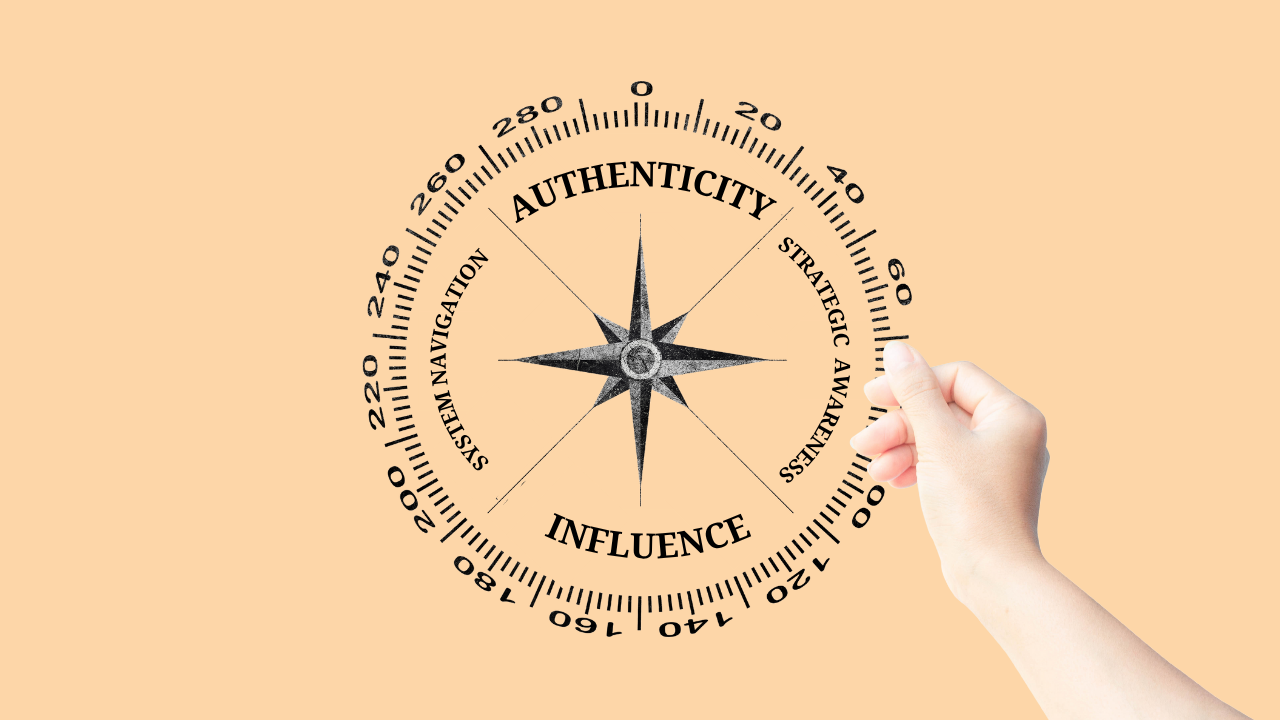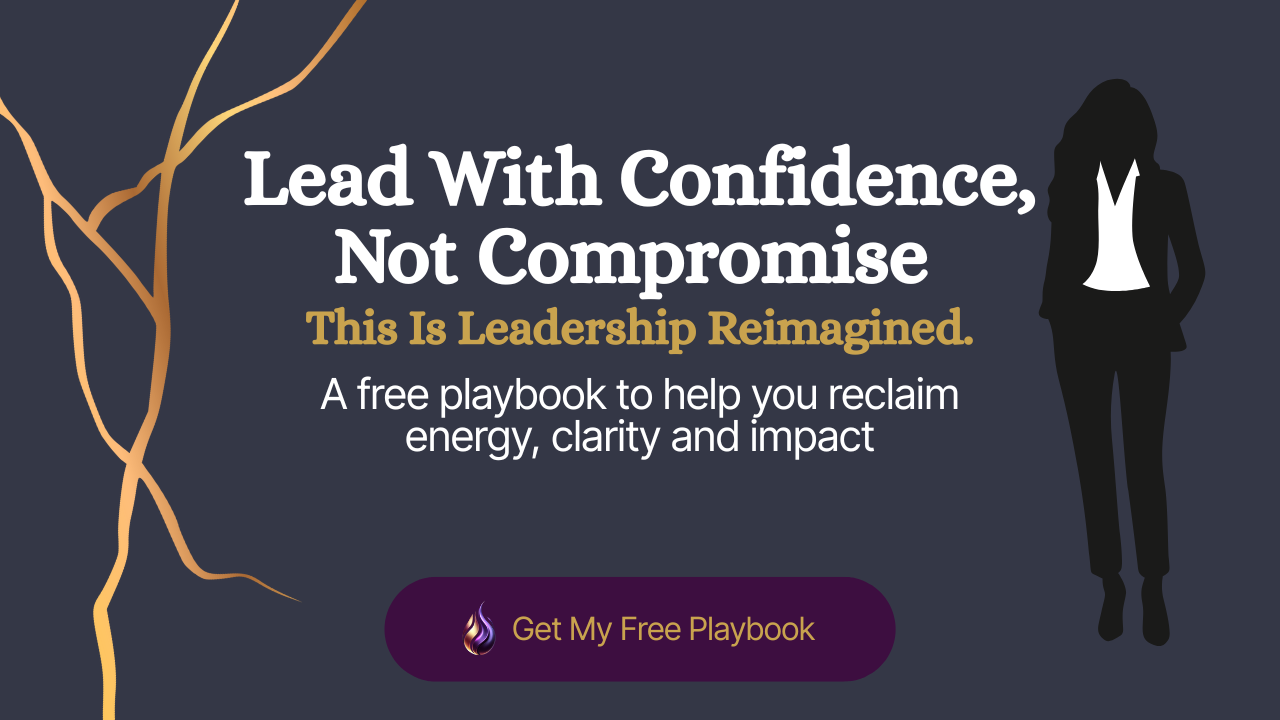Do I Have Imposter Syndrome?

(Here's Why That's the Wrong Question)
Do I have imposter syndrome? If you're a high-achieving woman asking this question, I want to start by saying this: what you're experiencing is real, valid, and incredibly common among successful women. You're not imagining it, and you're definitely not alone.
But here's what I've discovered after 30+ years navigating finance and tech, and now coaching ambitious women worldwide: the question itself might be steering us in the wrong direction. What if instead of asking "What's wrong with me?" we started asking "What's happening in this environment that's making me question myself?"
I'm not here to tell you that imposter syndrome doesn't exist or that your feelings aren't legitimate. What I want to share is a perspective that might completely shift how you see those feelings—and what you do about them.
Why This Question Feels So Personal
Let's be honest about what brings you to this point. You've worked incredibly hard to get where you are. You have real achievements, measurable results, and recognition from people who matter. Yet somewhere in the back of your mind, there's this persistent whisper: "Do I actually deserve to be here?"
Here are some imposter syndrome examples that might feel familiar:
- You're the only woman in the leadership meeting and your ideas seem to get lost until someone else repeats them
- You nail a presentation but immediately focus on the one question you couldn't answer perfectly
- You minimize your own accomplishments while celebrating others' much smaller wins
- You attribute your success to luck, timing, or help from others rather than your own competence
- You overwork to "prove" yourself worthy while colleagues seem to advance effortlessly
You're not alone in this experience. Research from Hays involving more than 8,000 employees found that 70 percent of women have experienced these feelings at some point in their careers, compared with just 58 percent of men. The Survey Center on American Life found that 43 percent of young women report doubting their professional abilities at least once per week, compared to 36 percent of young men.
But here's where it gets interesting—and where I think we need to look deeper.
What If Your Feelings Are Actually Data?
I've been thinking about this differently lately, and I want to share a perspective that might surprise you. What if those feelings of "not quite belonging" aren't evidence that something's wrong with you, but rather proof that you're incredibly perceptive?
Harvard Business Review published groundbreaking research challenging the entire concept of imposter syndrome as a personal failing. The authors point out that the term was developed in the 1970s without considering the effects of systemic bias, and it essentially pathologized normal responses to environments that weren't designed with women in mind.
Think about it this way: if imposter syndrome were purely a confidence issue, wouldn't we see it distributed equally across genders? The fact that women experience it disproportionately tells us there's something else going on.
Recent research from The Australian National University found that competitive workplace cultures actively fuel these feelings, with people more likely to feel like impostors when they work in environments where colleagues compete frequently for promotions or recognition.
My Own Wake-Up Call
I want to share something personal with you. For years, I thought I had severe imposter syndrome. Despite succeeding in the demanding world of finance and technology, I constantly questioned whether I belonged in leadership rooms. The feeling was so persistent that I started believing something was fundamentally wrong with my confidence.
But here's what I discovered: Yes, to some extent, I did experience imposter syndrome. But a significant portion of what I was feeling wasn't about my competence—it was a rational response to environments that weren't designed for women like me to thrive.
I was working in cultures where my collaborative leadership style was seen as "too soft," where my attention to relationships was viewed as "not strategic enough," and where I had to constantly prove myself in ways my male colleagues never did. My self-doubt wasn't random—it was my intuition picking up on real dynamics that were undermining my confidence.
The shift happened when I stopped trying to fix myself and started paying attention to what my feelings were telling me about my environment. That's when everything changed—not just for my career, but for how I help other women navigate these same challenges.
The Shift That Changes Everything
So here's what I want to offer you: instead of asking "How do I fix my imposter syndrome?" try asking "What is this feeling telling me about my environment, and how can I use this information strategically?"
This isn't about dismissing your feelings or pretending they don't matter. It's about recognizing that your discomfort might be valuable intelligence about:
- Cultural misalignment between your values and your workplace
- Bias patterns you're subconsciously detecting
- Communication styles that don't match your natural approach
- Leadership models that don't reflect how you operate best
When you start seeing your feelings as data rather than deficiency, something powerful shifts. You move from internal criticism to strategic awareness.
What This Looks Like in Real Life
Let me tell you about Maria, a finance director who came to me convinced she had severe imposter syndrome. She'd been passed over for promotion twice and was starting to believe she wasn't "leadership material."
As we worked together, we discovered her feelings weren't random—they spiked specifically after interactions with her boss, who had a very different communication style. Instead of trying to build confidence, we focused on understanding the dynamics and developing strategies for those specific situations.
Six months later, Maria didn't just get promoted—she was recruited by a company that valued her collaborative leadership approach. The transformation was about understanding what her feelings were telling her and acting strategically on that information.
Three Things You Can Do Right Now
Here are some practical steps you can take today to shift from questioning yourself to gathering strategic information:
1. Pattern Recognition Exercise For the next week, notice when feelings of self-doubt spike. Is it after certain meetings? With specific people? During particular types of feedback? Write it down. You're looking for patterns, not just feelings.
2. Environment Assessment Ask yourself: "In what settings do I feel most confident and competent?" Then: "What's different about those environments?" This helps you identify what conditions support your best work versus what undermines it.
3. Reframe Your Internal Voice When you catch yourself thinking "I don't belong here," try "I'm noticing some misalignment here." It's a small shift in language, but it moves you from self-criticism to curious observation.
This connects perfectly to understanding why executive presence advice often makes things worse—when you understand the systemic factors at play, your self-doubt becomes strategic intelligence.
Your Feelings Make Perfect Sense
Here's what I want you to know: your feelings make complete sense. If you're questioning whether you belong in spaces where you're often the only woman, where your communication style is criticized while men's identical approach is praised as "executive presence," where you have to prove yourself repeatedly while others are promoted on potential—of course you're going to feel unsettled.
That's not imposter syndrome. That's accurate environmental assessment.
The most successful leaders I work with—the ones who create sustainable success and lead from their natural patterns—aren't the ones who eliminated self-doubt. They're the ones who learned to distinguish between internal work and external navigation.
Moving Forward with Strategic Awareness
So back to the original question: Do you have imposter syndrome? Maybe. But more importantly, you have incredibly sophisticated pattern recognition that's trying to tell you something valuable about your environment and how to navigate it powerfully.
The goal isn't to stop feeling things—it's to feel them strategically and act on them intelligently.
What patterns are you noticing in your own experience? What environments make you feel most confident versus most doubtful? I'd love to hear your observations in the comments.
Transform Doubt into Leadership Mastery
If you're ready to take this work deeper, I'm thrilled to share that the next cohort of my Aligned Leadership Mastermind begins October 1st, 2025. This isn't another program about building confidence or "leaning in"—it's about mastering the art of strategic leadership while staying true to who you are.
In this intensive 12-week program, you'll learn to:
- Distinguish between personal growth areas and systemic navigation challenges
- Develop your unique leadership presence that commands respect without compromise
- Build strategic alliances and influence in environments that weren't designed for you
- Create the kind of leadership that changes cultures, not just climbs ladders
The women who go through this program don't just overcome self-doubt—they become the leaders who create environments where the next generation never has to question their worth.
I'm accepting just 6 participants for this October cohort to ensure intimate, personalized attention. If you're ready to stop questioning yourself and start transforming systems, this might be exactly what you've been looking for.
Ready to Transform Doubt into Strategic Advantage?
If this perspective resonates with you, the Aligned Leadership Playbook is your next step. Inside, you’ll discover:
✔ How to claim your authentic leadership identity (instead of performing confidence)
✔ A 3-second gut check to make decisions with clarity and conviction
✔ The boundary framework that protects your energy (and your impact)
✔ A redefined approach to productivity that fuels you instead of draining you
✔ Practical steps to lead like a human, not a machine
So you can reframe self-doubt into clarity, confidence, and impact — and lead powerfully, without compromise.
Your feelings aren't evidence that you're not ready. They're proof that you're paying attention.
Inbox clutter is exhausting. This isn’t that.
If you’re a high-achieving woman who’s done with leadership models that drain you—this is where it shifts.
You’ll get a monthly leadership newsletter, the occasional insider-only invite, and bold insights that actually move the needle.
Built for women who don’t have time to waste—and don’t want to.
We hate SPAM. We will never sell your information, for any reason.




